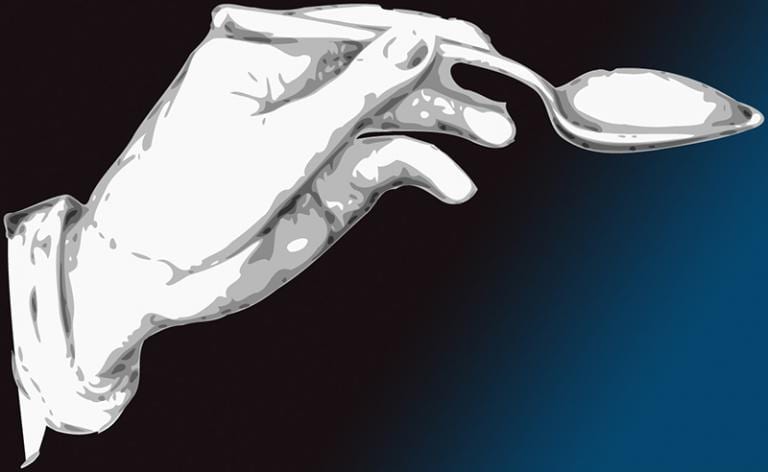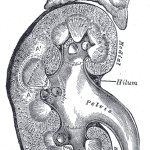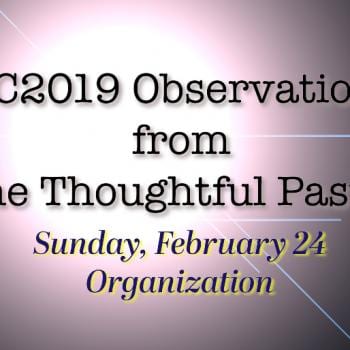 “Do you want to be well?”
“Do you want to be well?”
Jesus asks this of the man who had been ill for 38 years. In the John 5 story, the man doesn’t answer the question but instead gives an excuse: no one would help him. Jesus ignores the excuse and tells the man to stand up, take up his mat, and walk.
He does.
I’ve thought often about how this man’s life changed. He had neither walked nor worked. He’d spent his life begging, never earning a living, tending flocks or field which would have been the normal pattern. By standing up and taking up his mat, he also entered the world of the well, the place of responsibility for the self. No longer could he beg or ask others to care for him. His health and his life were suddenly his responsibility and his alone.
This scenario came to mind as I recently saw a commercial for a drug that purports to lower blood sugar. The number of side effects, many common and some extremely serious, boggles the mind. One medical writer has called this the worst new drug of 2014.
The drug will probably sell wildly. It is being heavily advertised to the average person–the commercials feature middle-aged, middle-class, slightly overweight individuals–many of whom will end up developing diabetes if they can’t keep their blood sugar under control. The developers will make a fortune. But many will find themselves far worse off after taking the drug than before.
The worst part of about this? Blood sugar can be effectively managed almost totally by diet and adequate physical activity, particularly for people targeted by this ad, those with “pre-diabetes,” a made up disease created to get people onto more and more drugs.
The real culprit in our diets is the amount of sugar nearly everyone in the so-called civilized world consumes. A quote from this op-ed piece about the addictive nature of sugar shocked me: “If you consider that the added sugar in a single can of soda might be more than most people would have consumed in an entire year, just a few hundred years ago, you get a sense of how dramatically our environment has changed.”
One can of soda has the equivalent of ten packets of sugar in it. A year’s worth of sugar. Wow. There are 17-and-one-quarter sugar packets in a 20 oz soda bottle. Consider that a medium-sized drink from a fast food restaurant is at least 21 ounces.
Here’s a site that shows visually how much sugar is in many common items. Many foods marketed as “low-fat” are extremely high in sugar since the removal of fat also removes the flavor. As a rule, we are far better to eat the normal fat products as smaller portions will satisfy more quickly and greatly lower the amount of sugar consumed.
Artificial sweeteners are more than likely making the situation worse. Not only do they probably help increase caloric consumption over all, a fair amount of research suggests that they may increase metabolic syndrome, a precursor to full-fledged diabetes. Furthermore, other research suggests they seriously disrupt the body’s blood sugar controls.
Not a pretty situation.
A long time ago, I realized that we make a mistake when we separate the way we care for our bodies from the way we care for our souls. This was hardly an original insight. John Wesley, in his book, Primitive Physic: An Easy and Natural Way to Cure Most Diseases, had great insight into the best ways to help create good health.
Here are some suggestions Wesley makes about exercise:
- A due degree of exercise is indispensably necessary to health and long life.
- Walking is the best exercise for those who are able to bear it; riding for those who are not. The open air, when the weather is fair, contributes much to the benefit of exercise.
- We may strengthen any weak part of the body by constant exercise. Thus, the lungs may be strengthened by loud speaking, or walking up an easy ascent; the digestion and the nerves by riding; the arms and hams* by strong rubbing them daily.
- The studious ought to have stated times for exercise, at least two or three hours a day; the one-half of this before dinner, the other before going to bed.
- They should frequently shave, and frequently wash their feet.
- Those who read or write much, should learn to do it standing; otherwise, it will impair their health.
- The fewer clothes anyone uses by day or night, the hardier he will be.
- Exercise first, should be always on an empty stomach secondly, should never be continued to weariness; thirdly, after it, we should take to cool by degrees, otherwise we shall catch cold.
- The flesh-brush is a most useful exercise, especially to strengthen any part that is weak.
- Cold bathing is of great advantage to health; it prevents abundance of diseases. It promotes perspiration, helps the circulation of the blood; and prevents the danger of catching cold. Tender persons should pour pure water upon the head before they go in, and walk swiftly. To jump in with the head foremost is too great a shock to nature.
Most of this stuff could have been written today, although we do generally wash our feet routinely these days.
As 2015 begins, I ask the same question that Jesus asked, “Do I want to be well?” Am I, are you, willing to take up our mats and walk? Will we address what our way of eating is doing to both our personal health and our national health? Will the clergy boldly address this from the pulpit?
Or, will we continue to mistreat the physical selves given to us by a Holy God, who expects us to use these bodies as the hands and feet of Jesus?
Simply put, the amount of sugar, both natural and artificial, that we consume is slowly killing us.
Should John Wesley be writing to the people called Methodist today, he would probably say something like:
- Eat only wholesome and whole foods that feed the body and nourish the soul.
- Avoid anything made with artificial products and added sweeteners of any kind.
- Cooperate with the Creator in the healing process and in living as well people.
Something to consider for this next year. And for the rest of our lives.

















